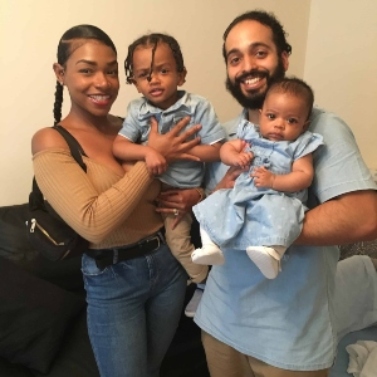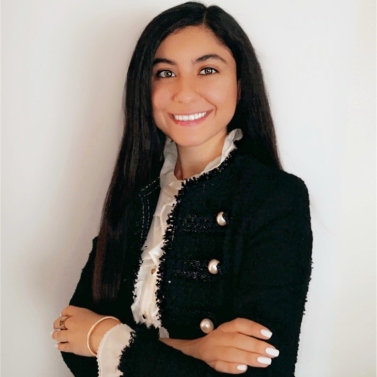Your child isn’t sleeping through the night, which means you aren’t either. What’s more, they’re cranky and irritable, and, well, that makes you cranky and irritable, too! Allergies are often at the root of poor sleep in kids, so how do you know if this is what’s bothering your child? Read on to learn from medical specialists and fellow parents about potential warning signs.

Willie Greer
Willie Greer, Founder of The Product Analyst.
Itchy Knees
This is my tell-tale sign that my kids are allergic to something. Their knees are very sensitive so when they scratch them, especially at night, then something is bothering them. One time, one of my kids had an allergy to his new milk brand. He was not crying or anything, just scratching his knees, even while sleeping. His knees have these small blisters so I thought of changing his milk. Luckily, those blisters were gone after the switching of brands.
Wakes Up in The Middle of The Night
There’s a good chance allergy is affecting your child’s sleep if he/she wakes up often through the night or after naps, if his/her nose is stuffy during the day and he/she has difficulty breathing, or if hives, rash accompany itchy skin on exposed areas.
If these symptoms don’t show up, but it appears that your child may still be experiencing problems because they have mucus in their mouth frequently and aren’t sleeping soundly, then there are other signs you should consider. They may get sick very often or cough a lot. These could also indicate an underlying medical condition such as asthma or fluid retention causing raised blood pressure.

Mo Mulla
Mo Mulla, Founder of Parental Questions.

Harriet Chan
Harriet Chan, Co-Founder and Marketing Director at CocoFinder.
Difficulty Falling Asleep (or Staying Asleep) due to Breathing Issues
Some common symptoms of allergies include sneezing and problems with breathing. Your child can also have itchy eyes. These symptoms tend to become worse during the night, making it difficult for one to sleep. Some of the disturbances include:
Insomnia
Your kid may fail to fall asleep. Even if they fall asleep, they may also find it difficult to stay asleep. The allergens may cause inflammation in the child’s nasal cavity.
Poor Sleep Quality
In many cases, your child will not enjoy continuous sleep. They will have frequent breaks since the allergens are making them uncomfortable.
Snoring and Difficulty Breathing
The primary signs that allergies affect sleep include nasal congestion, sneezing, and coughing, making it difficult to fall asleep. A child may also snore or have difficulty breathing. They may also rub their eyes and nose due to itchiness. Likewise, watery eyes and a runny nose are noticeable signs of allergies. Lastly, a child may also have daytime sleepiness due to not getting adequate rest at night.

Dr. Pierrette Mimi Poinsett
Dr. Pierrette Mimi Poinsett, MD, Medical Consultant at Mom Loves Best.

Erik Pham
Erik Pham, CEO of Healthcanal, an online publication with a focus on health and wellness.
3 Key Signs of Allergies Affecting the Child’s Sleep
1. Snoring
This may not seem [allergy-related], but if your child doesn’t usually snore, then it could be a sign that [their allergies] are getting much worse. They snore usually because their airways are being blocked, which could be an early sign that they’re having an allergic reaction to something. So, if you hear your child snore when they usually don’t, then I recommend that you look out for other symptoms of the allergy and deal with it before things become worse.
2. Constant Scratching
An allergic reaction could cause the skin to feel irritated so if you notice your child constantly scratching their backs, legs, and arms, then there might be something wrong. Check for rashes and identify whether these are caused by bug bites or if it is a legitimate allergic reaction.
3. Coughing And Sneezing
The most obvious symptom that an allergic reaction is affecting your child’s sleep is their constant coughing and sneezing at night. There’s something in their surroundings that is causing their immune system to go crazy, and it’s most likely an allergic reaction.
Daytime Fatigue, Runny Nose, Irregular Breathing While Asleep
Sleep inadequacy or disruption due to childhood allergies often goes unnoticed. Commonplace allergies like rhinitis more widely known as hay fever, along with conditions like asthma and eczema, are most often the culprits. The symptoms often include unusually loud snoring, interrupted or irregular breathing while asleep, difficulty in waking up properly, daytime fatigue, or the inability to concentrate adequately through the day. Other, more obvious, symptoms include things like an abnormally congested or runny nose.
Many allergies are triggered by dust and mites in mattresses. Apart from regular steam cleaning and vacuuming, you can greatly reduce these factors by using hypoallergenic sheets or blankets, and a good mattress topper that acts as a barrier to irritants. And, importantly, if symptoms persist, it’s important to see your healthcare provider, because there may be other underlying causes, too.

Thys du Plooy
Thys du Plooy, CEO of Sandman’s Shop.

Zarina Bahadur
Zarina Bahadur, CEO and Founder of 123 Baby Box.
Nasal Congestion, Hay Fever, Runny Nose
Nasal congestion is one of the most common symptoms of allergies in kids. A blocked nose while sleeping will result in a night of poor-quality sleep. This will leave the child exhausted the next day.
If the child is breathing through his/her mouth, the nose must be congested. This is the first sign of an allergy. Waking up with a headache is something that can hint at allergies keeping your child up all night.
Other allergies like hay fever can also lead to a runny nose, which can be quite irritating if it isn’t treated. It can keep the child awake at night, resulting in insomnia. Nighttime awakenings and sleepy days are also signs that your child isn’t getting enough sleep.
This is a crowdsourced article. Contributors are not necessarily affiliated with this website and their statements do not necessarily reflect the opinion of this website, other people, businesses, or other contributors.
